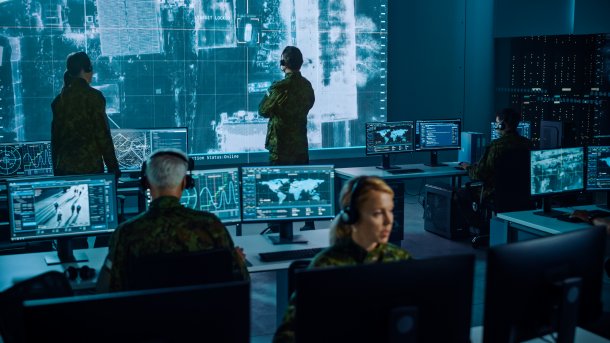Cyber attacks: Ex-BND chief calls for hack backs and cracking of communications
Following the alleged Russian espionage attack on the SPD, former BND chief Schindler is calling for more surveillance powers for the secret services.

(Bild: Gorodenkoff/shutterstock.com)
The former president of the German Federal Intelligence Service (BND), Gerhard Schindler, has once again called for counter-attacks on the internet in response to cyberattacks. "It would be good if we could get ahead of the wave," the lawyer told Redaktionsnetzwerk Deutschland. One way of doing this would be to use hackbacks to fend off cyber attacks. "We've been discussing this in Germany for over ten years," the 71-year-old complains. Switzerland, on the other hand, introduced hack backs back in 2016.
Schindler described the local debate about digital counterattacks as early as 2019 as "crazy", as it is a legitimate means of response. The security authorities are currently "obliged to watch when we are attacked". In its national security strategy and coalition agreement, the German government rejects hackbacks as a means of cyber defense in principle. At the same time, however, it is striving to "create a federal competence for averting danger in the event of serious cyberattacks from home and abroad by amending the Basic Law". Federal Minister of the Interior Nancy Faeser (SPD) in particular is campaigning for this.
"We need to focus on cracking communications," Schindler emphasized in the new interview. Germany is also struggling with communications surveillance and is not making any progress with data retention, for example. In addition, the BND is generally not allowed to collect German telephone numbers or email addresses during reconnaissance: "That is a major handicap." All a foreign agent has to do is pick up a German cell phone and the BND is out. The Office for the Protection of the Constitution needs a way to conduct strategic communications reconnaissance within Germany.
AI can help
Schindler also considers the use of artificial intelligence (AI) by the security authorities to be helpful in protecting citizens and the know-how of the economy. For example, recognizing patterns could help "who flies to which places and when". Travel routes are an important starting point for reconnaissance. However, such grid analyses are "almost impossible" under local data protection law. However, Schindler is also aware that wanting to change something here "means drilling thick boards". In general, espionage will continue to increase: "In addition to Russia and China, we have many other players such as Iran and North Korea." The consultant and lobbyist did not mention the USA, which carries out large-scale spying operations worldwide with the NSA and has already shown up the BND in the process.
"Attack is not the best defense on the Internet," said Maximilian Funke-Kaiser, digital policy spokesperson for the FDP parliamentary group in the Bundestag, contradicting Schindler. Prevention is needed instead of hack backs. Known security gaps must be closed as quickly as possible with a more independent Federal Office for Information Security (BSI). The right to encryption also provides individuals with the means to "better protect themselves and thus society from attacks".
The reopening of the debate was triggered by the fact that the German government has just blamed a unit of the Russian military intelligence service for a cyber attack on email accounts at the SPD party headquarters last year. According to the Ministry of the Interior, other online attacks were directed at German companies in the logistics, armaments, aerospace and IT services sectors, as well as foundations and associations.
(vbr)